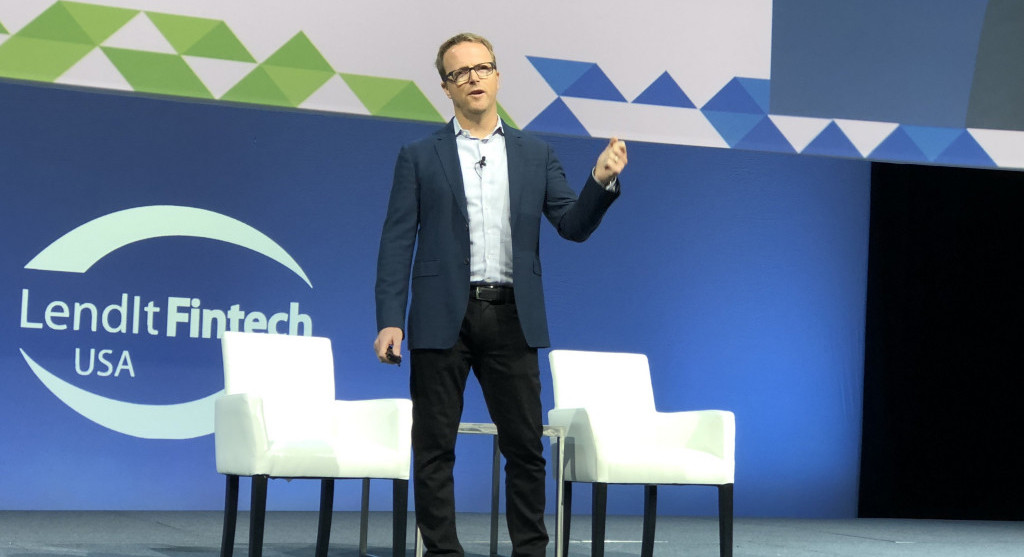Online Lending
Australian Lenders Commit to Best Practices Code
July 10, 2018 Six small business fintech lenders operating in Australia, including OnDeck, have signed a self-imposed “code of best practice lending principles,” according to a recent statement from Prospa, one of Australia’s largest online small business lenders. This comes shortly after Prospa paused its June IPO, having received a letter from the Australian Securities and Investments Commission (ASIC) requesting information.
Six small business fintech lenders operating in Australia, including OnDeck, have signed a self-imposed “code of best practice lending principles,” according to a recent statement from Prospa, one of Australia’s largest online small business lenders. This comes shortly after Prospa paused its June IPO, having received a letter from the Australian Securities and Investments Commission (ASIC) requesting information.
Possibly in response to ASIC’s inquiries into the Prospa IPO, what has emerged is a code of best practices signed by Prospa, OnDeck, Capify, GetCapital, Moula and Spotcap. This set of self-imposed rules, referred to as the Code, has not yet been solidified, but it already includes a number of constituents in a highly collaborative effort.
The six small business signatories will be contributing to the Code, along with a trade group for the Australian finance sector, the Australian Finance Industry Association (AFIA), the Australian Small Business and Family Enterprise Ombudsman, Kate Camel, the Bank Doctor, an SME advocate, and FinTech Australia, an industry association. According to the Prospa, the Code will be fully operational and enforceable by December 31, 2018.
“Our Online Small Business Lender Group members have embraced the sentiment of improving transparency and disclosure and took proactive action to come together quickly and collegiately to develop a Code,” said Helen Gordon, CEO of AFIA.
Acknowledging that small business lenders are already subject to rules from a number of regulatory bodies, the Prospa document stated:
“This Code is a proactive move to pull the obligations of online small business lenders together into one document. This makes it easier for current market participants and will also help new entrants understand their obligations.”
Already, some of the central elements agreed upon in the Code include:
- The introduction of a pricing comparison tool providing key metrics that will allow customers to compare the cost of unsecured loans from the signatories (including the total repayment amount, APR, simple annual interest rate)
- An easy-to-understand loan summary
- A glossary of key terms in accessible language that applies directly to online small business loans
- Signatories must attest their compliance with the Code on an annual basis
According to the Prospa statement, the Code was modelled after best practice examples and feedback from the US and UK, where the online lending industry is more developed.
This list of tenets already seems quite progressive, or onerous, depending on who you ask. The notion of introducing or requiring a price comparison tool is a hot button topic here in the US. Requiring that loans and merchant cash advance products be labeled with an APR or an Annual Cost of Capital (ACC) is what the state of California is moving towards with a highly contested bill that passed in the state assembly committee in June.
Proponents of the bill SB 1235, introduced by California State Sen. Steven Glazer, want to make certain that all small businesses can easily understand and compare the cost of loan and finance products. Opponents of the bill, many in the merchant cash advance industry, insist that a requirement like this amounts to shutting down their industry because a precise APR or ACC cannot be applied to a cash advance product given that the product depends on the duration of the deal, which is variable.
While not as formal, some efforts in the U.S. are also being made by alternative finance industry players to self-regulate. In May, the Small Business Finance Association (SFBA) announced the launch of an initiative called the SFBA Broker Council, which has a mission to create standards and best practices for brokers.
LendingPoint Gets Increase in Financing
June 28, 2018
LendingPoint announced today that it closed an increase of its mezzanine financing, bringing the total of the facility from Paragon Outcomes Management to $52.5 million. Mezzanine financing is a hybrid of debt and equity financing. Paragon and LendingPoint initiated a relationship with its first credit facility in January 2017 for $20 million. It was then upsized seven months later, and has now been upsized for the second time to $52.5 million.
“We believe this shows a tremendous amount of confidence in the way our portfolio continues to perform,” LendingPoint Chief Marketing Officer Mark Lorimer told deBanked. “It’s a great vote of confidence.”
Among other things, the new credit facility provides an increased advance rate for more efficient equity usage. Today’s announcement comes on the heels of more than a billion dollars worth of senior credit financing that LendingPoint has closed in less than a year. The company secured an up to $500 million senior credit facility in August 2017 and an up to $600 million senior credit facility last month, both arranged by Guggenheim Securities.
“[Paragon’s] support has been critical as we grow our origination volume and balance sheet, and march towards profitability next year,” said Tom Burnside, LendingPoint co-founder and CEO. “We’re proud that LendingPoint’s performance to date means companies like Paragon Outcomes want to be part of our future.”
In March, LendingPoint debuted a point of sale lending platform for merchants that Lorimer said is going well.
“We’re continuing to build it out, add more merchants to the platform and increase the funding levels,” Lorimer said.
Founded in 2014 and based in Kennesaw, GA, LendingPoint and its Merchant Solutions platform have originated more than 70,000 loans totaling more than $500 million.
Report Demonstrates How Online Lenders Benefit Economy
May 31, 2018 A report on “The Economic Benefits of Online Lending to Small Businesses and the U.S. Economy” was released yesterday, using data from 180,000 U.S. small businesses that represented nearly $10 billion in funding from 2015 to 2017.
A report on “The Economic Benefits of Online Lending to Small Businesses and the U.S. Economy” was released yesterday, using data from 180,000 U.S. small businesses that represented nearly $10 billion in funding from 2015 to 2017.
The report used data from five online lenders, including OnDeck, Kabbage and Lendio, and was sponsored by the Electronic Transactions Association (ETA), the Small Business Finance Association (SBFA) and the Innovative Lending Platform Association. The report was researched by three economists at NDP Analytics, an independent research firm.
One of the key findings was that the ten billion dollars funded from 2015 to 2017 by five of the top alternative small business lenders generated $37.7 billion in gross output and created 358,911 jobs and $12.6 billion in wages.
“I think the most important takeaway from this study is that small businesses are benefiting from a wide variety of choices in lending products,” said Jason Oxman, CEO of the ETA. “And, in particular, the online small business lenders have provided really a remarkable amount of working capital to small businesses in this country.”
Oxman told deBanked that he was surprised to learn from the report the percentage of borrowers that operate extremely small businesses. According to the report, 24 percent of online business borrowers operate businesses that have less than $100,000 in annual sales. And two-thirds of online business borrowers had less than $500,000 in annual sales.
“These are clearly small businesses,” Oxman said. “These are companies that obviously have capital needs and are getting those needs met by online small business lenders.”
New York State was a focus of part of the research. According to a press release for the report, data extracted from it indicated that “overall, the small business loans provided by online lenders [from 2015 to 2017] generated $2.5 billion in gross output and created 20,154 jobs with over $795 million in wages” for communities in New York State.
“We [organized the report] with New York in mind,” said Steve Denis, Executive Director at the SBFA. “We wanted to send a message to show how much of an impact the online lending industry had on the state.”
Other interesting data from the report include:
— 75 percent of U.S. businesses have less than 10 employees.
— 22 percent of small business owners use their personal savings to expand
— Online lenders offer loans to companies in all stages of their life cycle and the distribution of company age is relatively uniform.
“[Alternative small business lending] is creating a lot of economic activity,” Denis said. “We’re helping to create jobs, and we need to protect this tool. It’s a valuable resource for businesses…and this [report] demonstrates how important it is to the economy.”
GreenSky Lists on the Nasdaq
May 25, 2018 Yesterday, GreenSky announced its initial public offering of 38,000,000 shares of Class A common stock at $23.00 per share. The shares of common stock now trade on the NASDAQ under the symbol “GSKY” and are valued at $24.77, as of the close of trading today.
Yesterday, GreenSky announced its initial public offering of 38,000,000 shares of Class A common stock at $23.00 per share. The shares of common stock now trade on the NASDAQ under the symbol “GSKY” and are valued at $24.77, as of the close of trading today.
GreenSky facilitates point-of-sale financing that enables over 12,000 merchants to offer easy payment options to over 1.7 million consumer customers. Valued at $4.4 billion, according to Trefis, an independent financial data company, it is among the largest fintech companies in the lending space. But it is not a lender. Instead, it facilitates loans through its proprietary technology for prime and super prime borrowers to make high priced purchases. GreenSky’s merchant partners include home improvement businesses and clinics that offer costly elective medical procedures. The average FICO score of a GreenSky borrower is 760.
“Our roadmap to capture growth opportunities and deliver profitability to our shareholders is clear: continue to grow our current business, expand our network of merchants, enter new verticals, and broaden the solutions we offer to both businesses and consumers,” said GreenSky CEO David Zalik following the company’s IPO.
Zalik founded the company in 2006 and has kept a pretty low profile until the growth of GreenSky made it difficult for him to remain obscure. According to a September 2016 interview with Bloomberg, Zalik, whose company was then valued at $3.6 billion, said he had never given an interview before.
His personal story is as impressive as his company’s. He came to the U.S. from Israel when he was four and grew up in Alabama. Because of remarkably high standardized test scores, he started taking classes at Auburn University (in Auburn, AL) when he was 12, according to the same 2016 Bloomberg story. He sold his first company for a few million dollars when he was 22, at which point he moved to Atlanta.
In 2016, Zalik was the winner of the Ernst & Young Entrepreneur of the Year award for Financial Services. In his acceptance speech he said:
“My family and I came to this country in 1978 with two suitcases, and the dream of America. I am the child of two generations of refugees, and a proud American. This country has given my family everything. Freedom of opportunity [and] freedom from fear.”
GreenSky is based in Atlanta and employs more than 600 people. The company was unable to provide comments in time for this story’s publication.
LendingPoint Secures Facility of up to $600 Million
May 17, 2018 LendingPoint announced today that it has closed on a credit facility for up to $600 million, arranged by Guggenheim Securities. The direct consumer lender secured a facility in September 2017 for $500 million, bringing its recent combined credit facility to $1.1 billion, in just nine months.
LendingPoint announced today that it has closed on a credit facility for up to $600 million, arranged by Guggenheim Securities. The direct consumer lender secured a facility in September 2017 for $500 million, bringing its recent combined credit facility to $1.1 billion, in just nine months.
LendingPoint Chief Marketing Officer Mark Lorimer told deBanked that he was thrilled about the new facility for a number of reasons.
“But what I’m most excited about is the fact that we need it,” he said.
In the first quarter of 2018, LendingPoint processed more than 850,000 applications from borrowers requesting more than $9.2 billion in loans. These numbers are up from a year ago and also up from the fourth quarter of last year.
This rapid increase in demand has mostly been for the company’s primary loan product, a consumer loan for people with credit scores between 580 and 700, which LendingPoint calls “near prime.” These loans are between $2,000 and $26,500 with terms of 24 to 48 months.
“While our competition will occasionally dip down [to our level], they tend to be more comfortable in the 680 and up type of range, and that means that many of [the near prime] customers will come to us.”
With LendingPoint’s acquisition of merchant onboarding company LoanHero in December 2017, LendingPoint started offering a point of sale product to merchants at the begin of 2018. This loan product offers between $500 and $15,000 to consumers making specific purchases and these loans (with terms from from 12 to 60 months) have also been in very high demand, according to Lorimer.
This product has only been offered for six months, but Lorimer said that he would not be surprised if it becomes the larger contributor to overall originations within the next few years. For now, though, the company’s direct consumer loan product is responsible for the lion’s share of originations.
Since company issued its first loan in 2015, LendingPoint has originated more than 50,000 loans totaling more than $500 million. Headquartered in Kennasaw, GA, outside of Atlanta, the company employs about 160 people.
Prosper Loan Sales Highly Dependent on One Big Buyer
May 16, 2018Forty-five percent of all loans originated by Prosper Marketplace in the first quarter of 2018 were sold to a single buyer, according to their latest earnings statement. The single largest buyer over the same period last year had only purchased 33% of their loans.
Last year, Prosper announced that they had closed a deal with a consortium of institutional investors to buy up to $5 billion worth of loans over the next 24 months. The investors in the consortium are affiliates of New Residential Investment Corp., Jefferies Group LLC and Third Point LLC.
Prosper originated $744 million worth of loans in the first quarter of this year alone. $333 million of those were purchased by the consortium for a total of $2.16B purchased to-date.
Online Lender Turns to Bachelorette Star to Promote Loans
April 26, 2018Will you accept this rose…err..loan?
Joelle “JoJo” Fletcher has come a long way since her 2016 season on The Bachelorette where she found love with Jordan Rodgers, the younger brother of Green Bay Packers quarterback Aaron Rodgers. The couple is still together and JoJo is now a spokesperson for Marcus, the online consumer lending arm of Goldman Sachs. In the TV advertisement, which you can click to watch below, she explains why Marcus is the way to go if you need financing for home improvement.
ABC seems to produce the best TV celebrities for online lenders. Three judges on Shark Tank, which is also an ABC show, have all been spokespeople for online lenders.
Barbara Corcoran – OnDeck
Lori Greiner – Kabbage
Kevin O’Leary – IOU Financial
While JoJo herself is no shark, The Bachelorette/Bachelor franchise is the number one reality program — among adults 18-49 living in homes with $100,000+ annual income, a demographic that Marcus is undoubtedly targeting.
Full disclosure: I watched the two seasons that JoJo was on in their entirety.
FTC Sues Lending Club
April 25, 2018
Today, the Federal Trade Commission (FTC) filed a 30 page lawsuit against Lending Club, primarily for using language in its marketing that misleads consumers. There were also charges against Lending Club that it has made unauthorized withdrawals from consumer accounts and that it has failed to share required privacy notices with consumers.
Regarding Lending Club’s misleading language, the FTC lawsuit starts with the company’s promise of “No hidden fees.” The suits alleges that, despite the advertisement, hiding fees is exactly what the company does. It maintains that when loan funds arrive in Lending Club consumers’ bank accounts, the loan amount is “hundreds or even thousands of dollars short of expectations due to a hidden up-front fee that [Lending Club] deducts from consumers’ loan proceeds.”
The FTC further states that the company has continued with “No hidden fees” advertising “despite warnings from its own compliance department that [its] concealment of the up-front fee is ‘likely to mislead the consumer.’” According to the suit, Lending Club has allegedly been warned about this not only by its own compliance team, but also by one of the company’s largest investors. Instead of taking action to minimize this, the suit says that the company did the opposite – it increased the prominence of “No hidden fees” and decreased the prominence of a small question mark icon which, if clicked on, describes in small lettering the up-front fee.
According to the FTC suit, Lending Club uses other language to mislead people, including “Great news! Investors have backed your loan 100%!” These words are shown to loan applicants even if there are more steps left before they qualify for a loan. And in some cases, they may not qualify at all.
When contacted by deBanked, a Lending Club spokesperson issued the following statement in response to the FTC charges:
“We support the important role that the FTC plays in encouraging appropriate standards and best practices. In this case, we believe the FTC is wrong, and are very disappointed that it was not possible to resolve this matter constructively with the agency’s current leadership. In our decade-plus history we have helped more than 2 million people access low cost credit and have co-founded two associations that raised the bar for transparency. The FTC’s allegations cannot be reconciled with this long standing record of consumer satisfaction that’s reflected in every available objective metric.”
Lending Club also wrote a response in its defense against each of the FTC’s main charges.
Founded in in 2007, Lending club is a public company based in San Francisco.






























